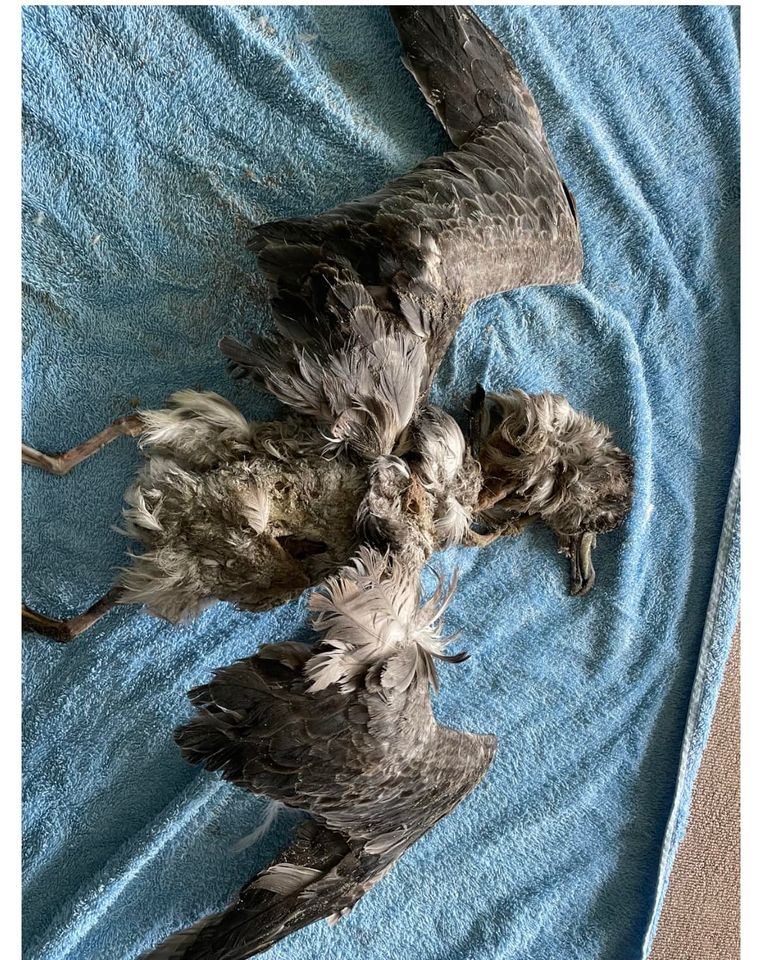Grey Petrel at sea, watercolour by ABUN artist, Walt Anderson; after a photograph by Hadoram Shirihai
The corpse of an ACAP-listed Grey Petrel Procellaria cinerea (Near Threatened) was collected on 11 June 2022 from Middleton Beach, South Australia (35° 31’S, 138° 43’E) wearing metal leg band No. DZ17839 and white engraved plastic band 042, as first reported by Wildlife Welfare Organisation (SA) on its Facebook page.

The French-banded Grey Petrel recovered in Australia; its leg bands have been removed
The petrel was banded by Centre d'Etudes Biologiques de Chizé, France as part of the project “Seabirds and Marine Mammals as Sentinels of Global Change in the Southern Ocean” (Project: 109 ORNITHOECO), supported by the French Polar Institute Paul Emile Victor (IPEV) on 01 April 1994 as an adult of unknown gender on Mayes Island, Kerguelen Archipelago (49° 28′S, 69° 57′E). The bird was thus at least 28 years’ old when recovered thousands of kilometres from its banding site. The bird was regularly observed in its study colony from 1994 – 2007, during which time it raised at least four chicks to fledging. From the photograph the bird was not in a fresh condition when found, making identifying a cause of death problematic.
With thanks to Karine Delord, Centre d'Etudes Biologiques de Chizé, who received recovery details from Rebekah Collins, Australian Bird and Bat Banding Scheme.
Relevant Literature:
Delord, K., Barbraud, C., Pinaud, D., Ruault, S., Patrick, S. & Weimerskirch, H. 2019. Individual consistency in non-breeding behavior in a long-distance migrant seabird, the Grey Petrel Procellaria cinerea. Marine Ornithology 47: 90-103.
Torres, L.G., Sutton, P.J.H., Thompson, D.R., Delord, K., Weimerskirch, H., Sagar, P.M., Sommer, E., Dilley, B.J., Ryan, P.G. & Phillips, R.A. 2015. Poor transferability of species distribution models for a pelagic predator, the Grey Petrel, indicates contrasting habitat preferences across Ocean Basins. PLoS ONE. 2015, 10 (3), e0120014.
Barbraud, C., Delord, K., Marteau, C. & Weimerskirch, H. 2009. Estimates of population size of white-chinned petrels and grey petrels at Kerguelen Islands and sensitivity to fisheries. Animal Conservation 12: 258-265.
John Cooper, ACAP Information Officer, 19 July 2022

 Español
Español  English
English  Français
Français 